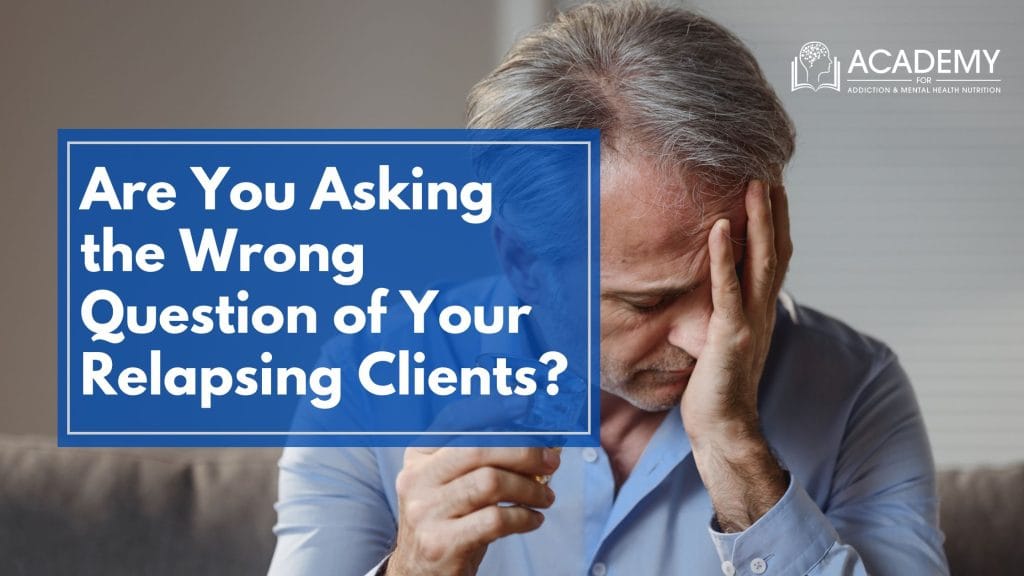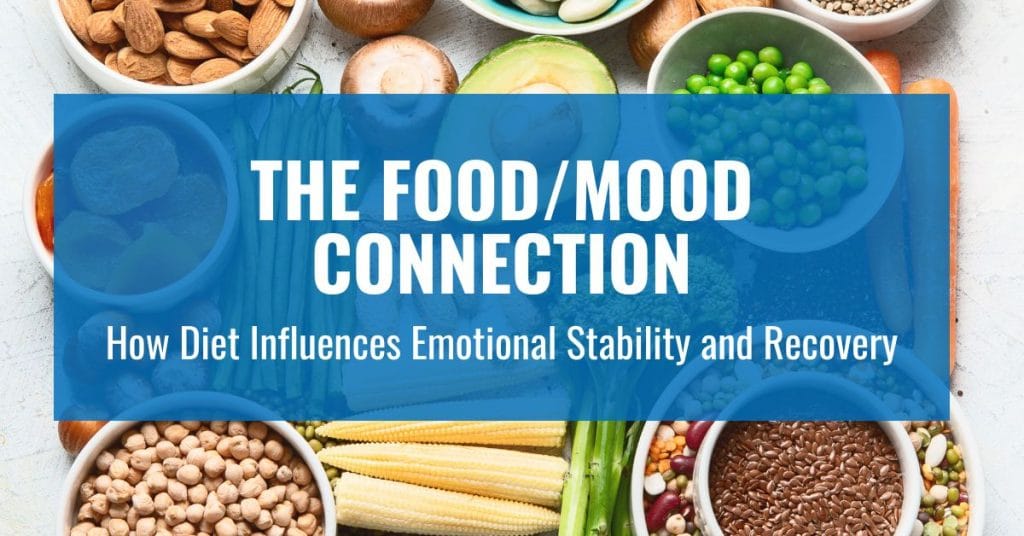Why Every Recovery Professional Needs EAT! in Their Practice Library

Why Every Recovery Professional Needs EAT! in Their Practice Library If you work in addiction recovery, you’ve seen this scenario play out: A client who’s doing everything right. Showing up to sessions. Engaging in treatment. Using their tools. Fully committed to their recovery. But they’re struggling. Intense cravings that seem to come out of nowhere. […]
Are You Asking the Wrong Question of Your Relapsing Clients?

Many people cycle through program after program, or meeting after meeting, to no avail. They keep being given the same information and therapeutic approaches, and nothing changes. Conversely, some people sail through recovery, don’t have cravings or relapse, or suddenly find the missing piece, the secret sauce that makes all the difference in the world. What is this missing piece?
The Food and Mood Connection: How Diet Influences Emotional Stability and Recovery

At the Academy for Addiction and Mental Health Nutrition, we emphasize the critical role of diet in mental health and recovery. One of the foundational concepts in our approach, and the core content of our Amino Acid Therapy Level 1 Certification Training, is the Food/Mood Connection.
Amino Acid and Nutrient Support for Pain Relief

This article will focus on the biochemical/nutritional tools we have available to us. We will explore ways to reduce inflammation, decrease pain awareness, improve pain tolerance or resilience, speed up tissue healing, and even positively impact impaired neural pathways.
Amino Acid Therapy for Stress Relief

By Christina Veselak MS, LMFT, CN. Director, The Academy for Addiction and Mental Health Nutrition In honor of Stress Awareness Month, I would like to explore the roles our four mood-mediating neurotransmitters play in helping us cope with stress, and how to support their function using amino acid therapy. They all actually work together to […]
The Antidote to St. Paddy’s Day Shadow Side

On St. Patrick’s Day, let’s talk about the darker side of Irish culture – the heavy drinking that is often associated with it. Did you know that people from Gaelic or Scandinavian backgrounds have a genetic disruption that can lead to depression and alcohol dependence? Learn more by reading our latest blog post.
Adding a Nutritional Component to Your Addiction Treatment Program for Financial Benefit

How the FINANCIAL BOTTOM LINE of an Addiction Treatment Program Will IMMEDIATELY Benefit From Adding a Robust Nutritional Component to their Approach!
Thoughts from an Addiction Conference on Sugar as a “Bad Food!”

This article was written on the last day of a 4-day addiction conference in Colorado. I was there presenting on a genetic test, GARS, that purports to be able to predict with a fair degree of accuracy people’s predisposition to a variety of behavioral and addictive disorders, including to sugar. My Academy also had a […]
How Functional Nutrition May Hold the Key to Successful Addiction Treatment and Recovery

I believe that Functional Nutrition and Functional Nutritionists hold the key to transforming the efficacy and success rate of addiction treatment and recovery efforts. However, addiction is not typically addressed nor taught in nutrition circles, and therefore people with addictive disorders as their primary complaint are a massively underserved population.
Community Prevention Strategies for Mental Health Issues and Substance Misuse which Address Underlying Biochemistry

As we all know, prevention itself is a powerful long-term strategy in our fight against addiction. It takes many shapes and forms, but the key is to build resilience in vulnerable populations.